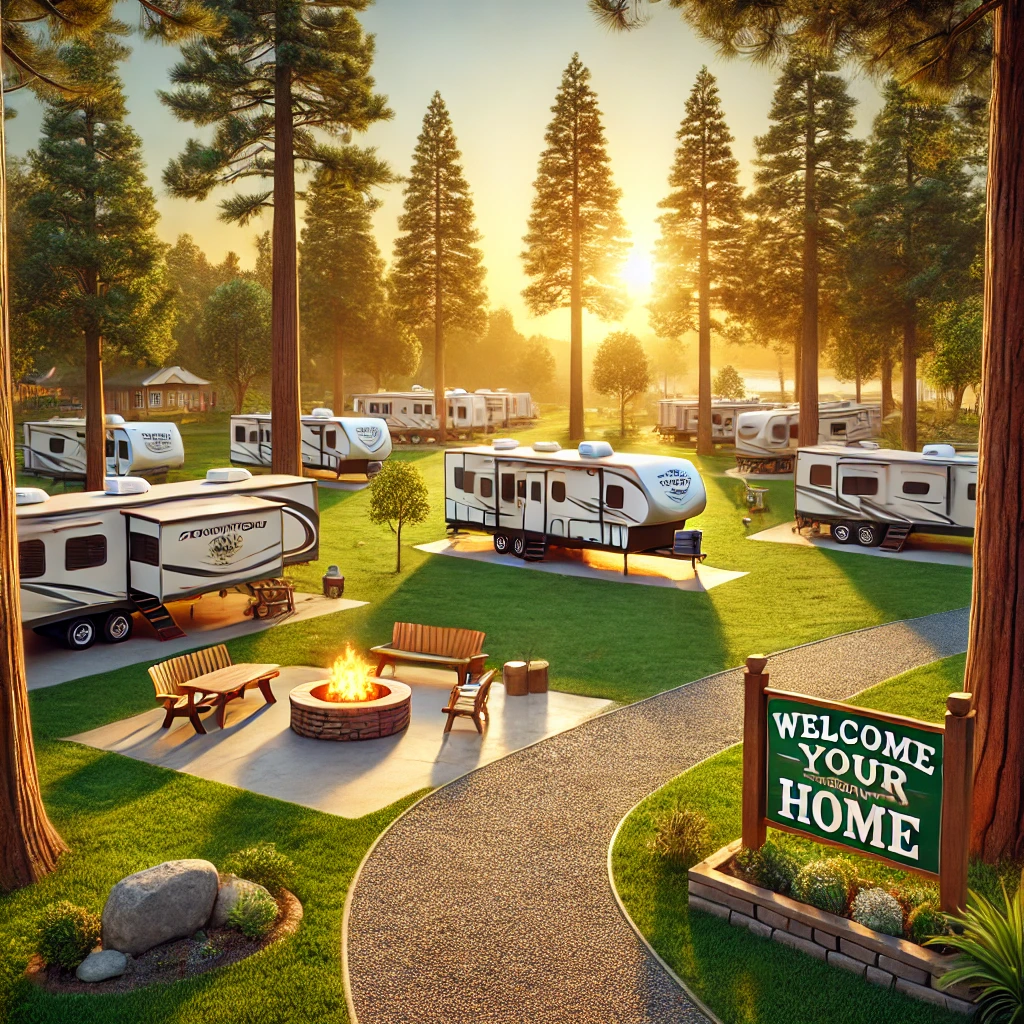When it’s time to step back from the day-to-day operations of your RV park, you have more transition options than you might think. It’s not just a choice between handing it down to your children or selling it outright. Whether you want to stay partially involved or make a clean break, there are creative and practical solutions for every type of owner. From leasing the property to a professional operator to converting it into a cooperative owned by your campers, you can explore flexible paths that keep the business thriving, secure your financial future, and align with your personal and family goals.
In this blog, we’ll walk you through some of the key transition options available for RV park owners. From hiring a manager to converting your park into a cooperative, we’ll explore strategies to help you make an informed decision that fits your unique circumstances and long-term objectives.
Understanding Your Transition Goals
Before diving into the options, it’s crucial to define what you want your transition to look like. Are you looking to reduce your workload but remain connected to the park? Or do you prefer a clean break, maximizing the sale value? Do you want this asset to be passed on to generations to come?
Take time to reflect on your long-term goals. Consider your financial needs, emotional connection to the park, how your family feels about the park, and whether you’re ready to let the park go or want to stay involved in some capacity. Having clarity will help you decide between different options such as hiring a manager, entering a joint venture, leasing the property, or opting for a full sale. Let’s go through the options in more detail next.
Option 1 – Hiring a Manager: Hands-Free Ownership
For owners who still want to retain full ownership but not the day-to-day responsibilities, hiring a manager is an ideal solution. This option lets you enjoy a steady income while someone else handles the operational details.
A professional manager can oversee bookings, customer relations, and maintenance, giving you time to focus on other interests. Be sure to establish clear communication and expectations to ensure smooth operations and a seamless transition.
Option 2 – Leasing Your Property to an Operator
Leasing your RV park to a professional operator allows you to collect rent without the hassle of management. This arrangement is particularly attractive if you’re seeking passive income without selling the property.
Negotiate lease terms that align with your goals, including a reliable monthly rent and clauses to protect the property’s condition. By transferring operational duties to an experienced operator, you ensure your park’s legacy remains intact while enjoying financial security.
Option 3 – Joint Venture Partnerships: Sharing the Load
A joint venture partnership can ease the burden of managing your RV park while maintaining partial ownership. This strategy involves bringing in a partner to share responsibilities, capital, or both.
Select a partner with complementary skills and shared values. Together, you can scale the business, improve profitability, and divide the workload in a way that aligns with each party’s skill set and areas of interest. It’s a great way to stay involved while reducing stress and paving the way for a gradual retirement.
Option 4 – Cooperative Conversion: Empowering Your Campers
Transforming your RV park into a cooperative or nonprofit is a unique way to ensure its long-term sustainability while rewarding loyal campers. In this model, the residents purchase their individual sites, gaining ownership stakes in the park. A member governance structure, such as a Board of Directors, needs to be established, along with by-laws, rules and regulations for how the park will be managed and governed.
This transition can generate significant revenue upfront, as campers buy their lots, and reduce or eliminate your operational responsibilities. It also creates a tight-knit community that values the park as much as you do.
Option 5 – Selling Your RV Park on the Open Market
If you’re ready for a complete exit, selling your RV park is a straightforward option. Working with an experienced team can help attract the right buyer and maximize your return.
Prepare the park for sale by addressing maintenance issues, organizing financial records, and showcasing its profitability. Highlight opportunities for growth to appeal to prospective buyers. A well-executed sale ensures a smooth transition and leaves you free to enjoy retirement.
Option 6 – Gradual Retirement Through Partial Sale
A partial sale involves selling a percentage of your park to an investor or partner while maintaining a share of ownership. This approach provides an immediate financial boost and long-term income potential.
Find a buyer aligned with your vision to ensure a successful collaboration. This option is particularly beneficial for owners who want to stay involved in a reduced capacity, sharing decision-making responsibilities with their new partner.
Planning for a Legacy: Combining Options
Sometimes, a combination of strategies works best. For instance, you might hire a manager for a few years before converting the park into a cooperative or selling it entirely.
Consider the timeline and financial implications of each step. Combining options allows for a gradual transition, giving you and your team time to adapt while ensuring the park’s continued success.
Making the Transition Smooth and Rewarding
No matter which path you choose, thoughtful planning is key to a successful transition. Engage trusted advisors, involve your staff and campers when appropriate, and stay focused on your long-term goals.
Transitioning your RV park doesn’t have to be daunting. By exploring these options, you can retire on your terms while ensuring the park thrives for years to come.

